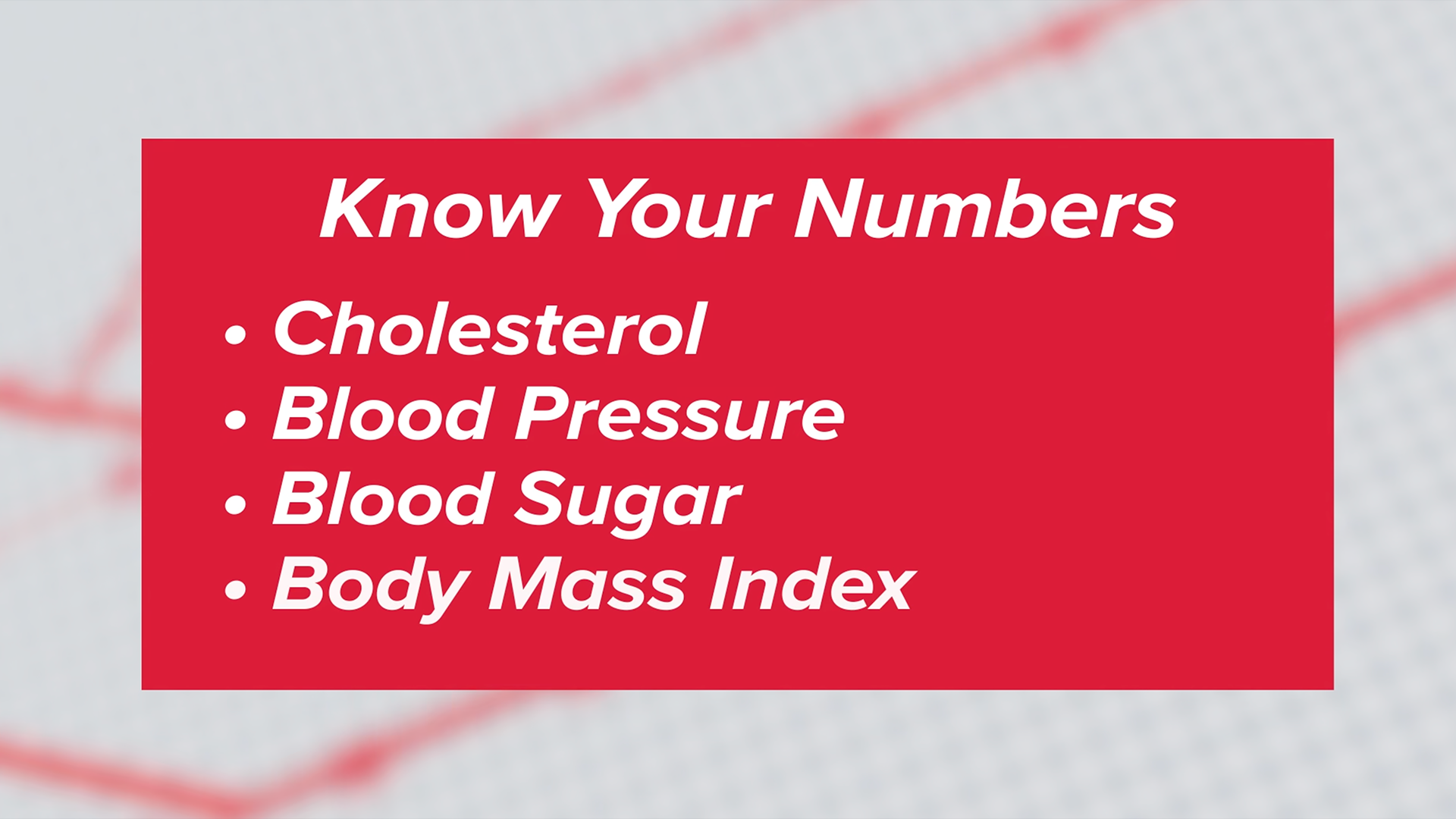TEMPLE, Texas — National Heart Month is a perfect time to think about your heart health! A great place to start is knowing your numbers because you can't manage what you don't measure.
According to the American Heart Association, these numbers include body mass index, blood pressure, cholesterol, and blood sugar.
In this edition of Your Best Life, I headed to the doctor to get checked out and find out her health numbers.
"I like for my patients to be empowered and I would say that knowledge is power. So if you don't have the knowledge about your condition or the numbers (then) you don't have the power to change those things," Dr. Ryan Fowler of Equilibrium Squared Holistic Health said.
Fowler said that getting a simple blood test is a great place to start when it comes to being empowered about your health.
Since I'm adopted and don't have a detailed family history, I want to be proactive when it comes to my health and wellness. I'm also turning 34 this year, and Dr. Fowler said it's a great time for a seemingly healthy person to get checked.
"So I'd say if you're thinking that you're unhealthy, to begin with, like, overweight and can't exercise, maybe you should start right away. And there probably isn't really a too early time to look for that kind of stuff," Fowler said. "But for someone that is, you know, healthy and can exercise and do all the things you know, probably mid-30s is a great time to think about that."
Fowler's partner Kelli Dudley, who’s an Advanced Practice Registered Nurse and Family Nurse Practitioner, drew Leslie's blood.
Several tests were then ordered, including my fasting glucose, cholesterol and insulin levels, and my hemoglobin A1C.
"So, with those three markers, you can pick out somebody that's very early metabolically sick or pre-diabetic all the way to full diabetes,” Fowler said.
He also told me that many things contribute to heart disease, not just family history. It's also things like diet, exercise, sedentary lifestyle, smoking and having untreated high blood pressure.
According to Fowler, "Family history is definitely part of it, but, like we referenced earlier, lifestyle is probably even more important than that. There's a new emerging field called epigenetics and those are switches that sit on top of the genes. Whether it's for heart disease or whatever, and they can turn on and off. So if you're living the right lifestyle. You can turn off your family history, versus the opposite," Fowler said.
Last week I got my results back and I'm on the right track.
Fowler said, even if you have a family history of heart disease, or you have some other risk factors, you can make positive changes. But you have to make the first step and find out your numbers.
"In my experience when people are really avoiding it, they know something's wrong and they just don't want to admit it. But I think probably part of where that comes from is they don't feel they have the power to change it. But I 100 percent disagree with that," Fowler said. "There's definitely studies that show with lifestyle changes alone, not even a prescription, you can reverse signs of heart disease."
If you’d like to know your numbers, talk to your doctor about your concerns and get a blood test. Remember, knowledge is power.

